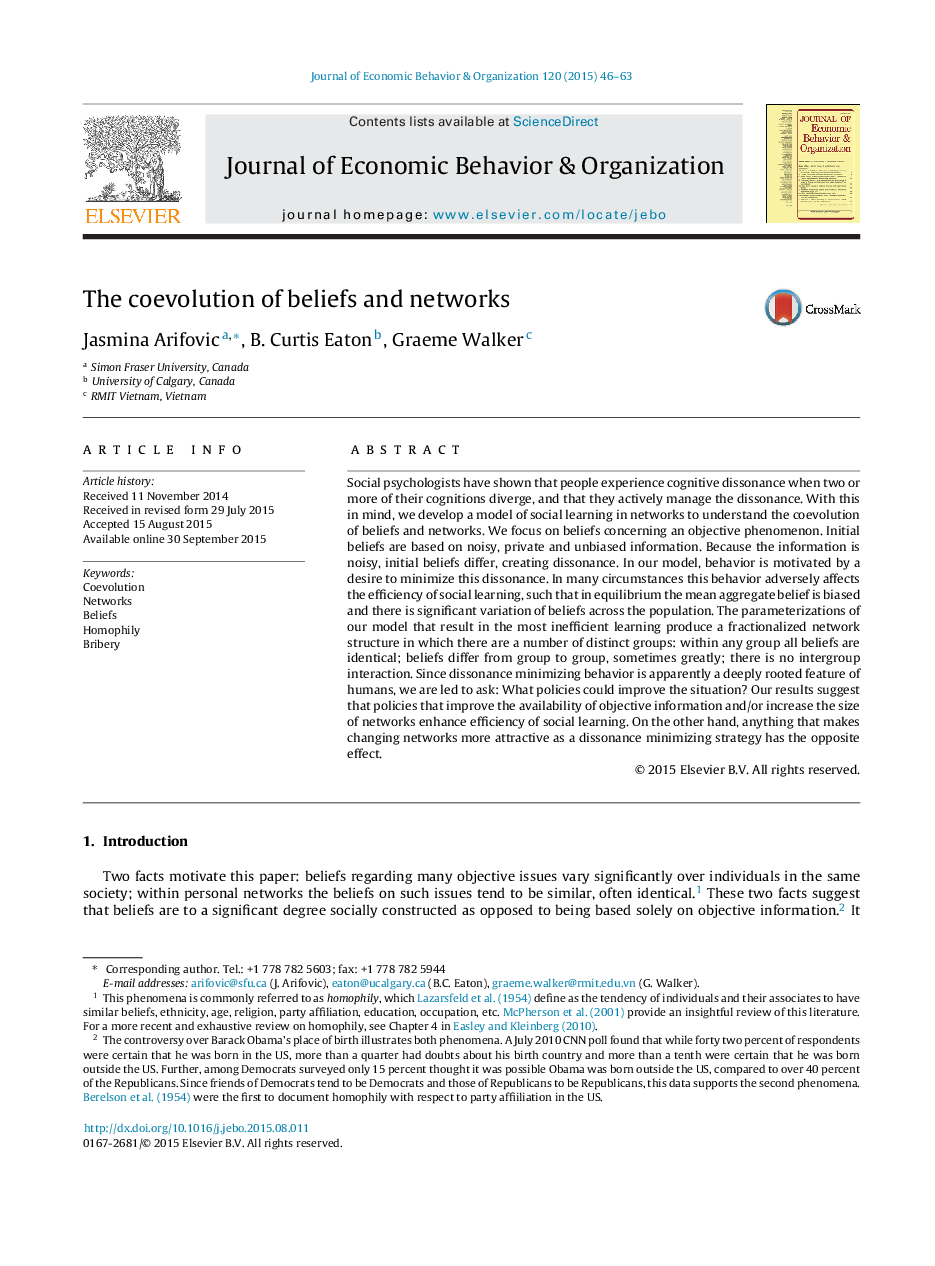| کد مقاله | کد نشریه | سال انتشار | مقاله انگلیسی | نسخه تمام متن |
|---|---|---|---|---|
| 883441 | 1471644 | 2015 | 18 صفحه PDF | دانلود رایگان |
• We model the evolution of beliefs and networks.
• Cognitive dissonance and efforts to manage it drive the process.
• Fractionalized networks beliefs within networks are similar, beliefs across networks vary.
Social psychologists have shown that people experience cognitive dissonance when two or more of their cognitions diverge, and that they actively manage the dissonance. With this in mind, we develop a model of social learning in networks to understand the coevolution of beliefs and networks. We focus on beliefs concerning an objective phenomenon. Initial beliefs are based on noisy, private and unbiased information. Because the information is noisy, initial beliefs differ, creating dissonance. In our model, behavior is motivated by a desire to minimize this dissonance. In many circumstances this behavior adversely affects the efficiency of social learning, such that in equilibrium the mean aggregate belief is biased and there is significant variation of beliefs across the population. The parameterizations of our model that result in the most inefficient learning produce a fractionalized network structure in which there are a number of distinct groups: within any group all beliefs are identical; beliefs differ from group to group, sometimes greatly; there is no intergroup interaction. Since dissonance minimizing behavior is apparently a deeply rooted feature of humans, we are led to ask: What policies could improve the situation? Our results suggest that policies that improve the availability of objective information and/or increase the size of networks enhance efficiency of social learning. On the other hand, anything that makes changing networks more attractive as a dissonance minimizing strategy has the opposite effect.
Journal: Journal of Economic Behavior & Organization - Volume 120, December 2015, Pages 46–63
